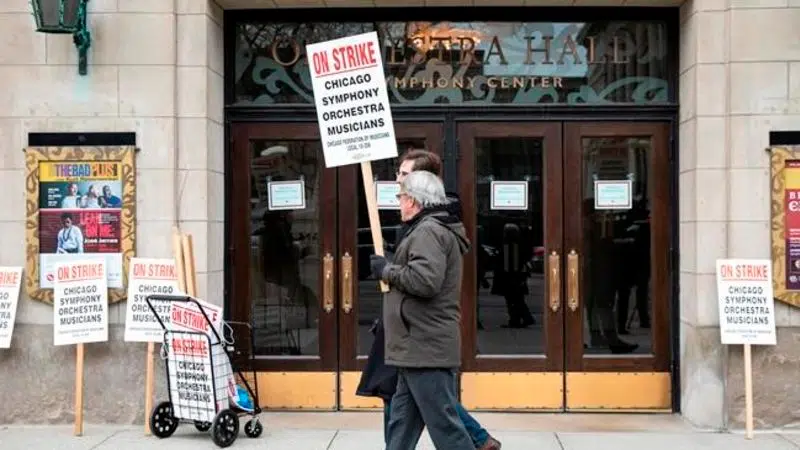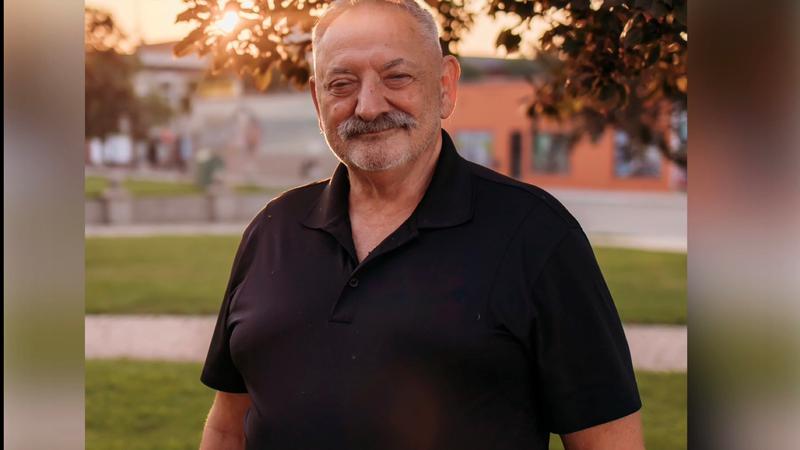
Chicago Symphony musicians’ strike over wages, pension
CHICAGO — A line of classical musicians marching with picket signs in front of the Chicago Symphony Orchestra’s historic downtown building is fast becoming one of the city’s must-see spots.
About 100 of the orchestra’s musicians have been on strike since March 11, at odds with orchestra officials over pension and wage issues. Their picket line has attracted support and visits from congressmen, mayoral candidates, musical theatre performers and the musicians’ own maestro, renowned Italian conductor Riccardo Muti. U.S. Sen. Dick Durbin planned to visit Friday.
Symphony officials have cancelled 17 concerts through Monday. The union has organized shifts of about a dozen picketers into four three-hour shifts daily from 8 a.m. to 8 p.m.


